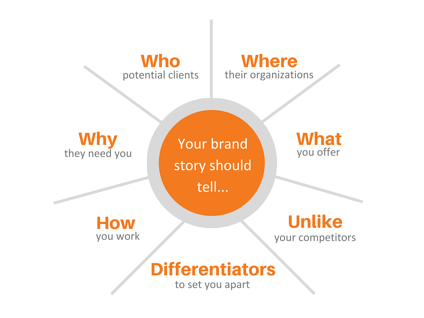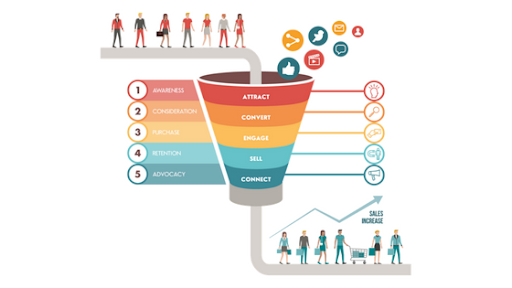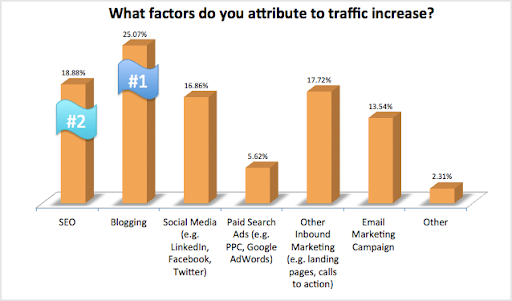Why is Digital Marketing A Must Have for Your Business from Here On
Digital Marketing combined with relevant content strategy and supported technology will become a game changer for your growth of your business
13 ways to create a digital marketing strategy that boosts conversions. Create your own digital marketing strategy using this free download template
13 WAYS TO CREATE A DIGITAL MARKETING STRATEGY THAT IMPROVES YOUR DIGITAL PRESENCE & BOOST CONVERSIONS
Download Free Digital Marketing Strategy Template Ppt
An integrated approach to digital strategies at various ‘touch points’ of ‘customer journey’ is what one needs to create that perfect digital marketing strategy.
This article will help you create your own digital marketing strategy along with a free download of a digital marketing strategy template to use as your own.
Before proceeding to create a digital marketing strategy for your business in 2020 let's have a quick look at the digital marketing strategy framework first.
5D’s of Digital Marketing
Every Digital marketing Strategy Comprises of the below 5D’s:
Let’s understand what each of these means and how together they build a digital marketing strategy that will improve your digital presence and boost conversions.
Digital Technology:
The most important part of the digital strategy is technology.
Marketing today is driven by the right kind of technology and tools to enhance and upgrade your marketing efforts that show highly effective results.
The first step is to choose your Marketing Technology aka MarTech stack.
Here are the tools you need:
Digital Data:
Digital data normally consists of audience profiles and engagement patterns with businesses. This aspect is captured by a typography setup within your chosen digital technology that focuses on building interactive experiences across a wide range of digital channels and your digital channels.
Digital Channels:
Digital channels are another component that involves the analysis of the preferred platforms to target the audience. Evaluate the digital marketing channels explained above to build your digital marketing strategy. A collection of paid, owned, and earned channels utilize to build engagement with the target market through several ways such as advertising emails, messaging, search engines, and social networks.
Digital Metrics:
Identifying business goals and setting up marketing metrics to fulfill your goals is the honest way to see how your campaigns perform.
Digital Devices:
It mainly focuses on the target audience’s interaction and engagement on websites and mobile applications using a combination of connected devices. These devices may include smartphones, tablets, desktop computers, TVs, and gaming devices. Hence it's most important to make your websites and landing pages SEO-friendly and mobile-friendly.
Here are 13 Steps to Create your own Digital Marketing Strategy
1. Build your unique positioning & messaging
Let’s discuss each of these steps in details:
1: Build your unique positioning & messaging

Your brand is your story and the narrative of your company. Brand positioning and messaging with consistency in the presentation are critical for your enterprise. The trust thus developed has been proved as a deciding factor by 81% of consumers, the Edelman study concluded.
The consistent presentation across all digital channels has been proven to enhance the revenue by 33% as per the Lucid Press Study, 2019.
Identifying the buyers’ personas, understanding consumers’ pains, introducing your products and services as a solution and their leading edges against the competitors, and pitching the brand story in an interactive way are the four main pillars of brand positioning and messaging.
2: Build your buyer persona
Digital Marketing's best strategies for 2020 and beyond requires a detailed persona of your buyers and the one who has shown interest in services; as the marketers must be aware of who they are marketing to and must market to.
HiP B2B study revealed that behaviorally targeted ads are twice effective as non-targeted ones and Hubspot has concluded that marketing persona makes a website 3-5 times more effective & easier to use. A study by the Marketing Insider group has revealed that out of the companies that have exceeded their leads and revenue goals, 93% of them were working on the segregated data based on the buyer’s persona.
The effective digital marketing strategy is executed upon the detailed buyer persona and therefore the marketers are required to create it.
3: Identifying your business and marketing goals
The digital marketing strategy framework must match the business’s overall goals and the marketing required for the purpose.
Whatever the digital marketing goals are, one must be able to measure the success and specific performance indicators must be identified for the purpose. Specialized tools and analytics must be deployed to bring the marketing and sales data to quickly assess the strategy areas requiring modifications or the practices delivering better results.
4: Prepare the list of digital marketing tools that you will need
This era of the internet requires marketing on a digital level but luckily now we have access to scores of digital marketing tools which streamline the work processes and facilitate seamless operations. From social media handling to right keyword and content finder, CRM to ERP, account-based marketing to performance analyzer, several highly efficient tools is available to automate the repetitive tasks and ease the overall execution.
The types and number of tools vary from business to business but several multi-purpose tools like Hubspot are also there which facilitate many aspects of digital marketing in one place.
For this purpose, the first step is to collect data regarding all the media frameworks under possession and categorize them into three parts viz. Owned, Developed, and Paid Media.
The digital channels which the brand or company owns like the website, social media pages, blogs, images, etc. are the owned channels.
The brand exposure developed through word of mouth, guest publishing, public relations work, or the customer experience provided anyhow comes under the Developed media category.
The paid advertising like Google Ads, Facebook Ads, or any other marketing tactic requiring you to pay for targeting the prospects is the Paid Digital media.
After a thorough assessment of all these three channels and their performance for the brand, an optimized strategy, for utilizing them, must be developed.
Whatever message a brand broadcasts is its own content and one has full control over it. Content helps in converting the visitors into leads and enhances sales. The owned media strategies are content-based and therefore the digital channels under possessions are at the heart of digital marketing.
Moreover, content optimization is good for the brand’s digital presence and boosts the rankings in search results.
Analysis of past strategies can help focus on target areas and set the best performance indicators with suitable figures for the business.
Choosing the time period, analyzing the competitor's strategy, the SEO strategy deployed by the competitors vs yours are some important aspects. Different tools can also be deployed to develop the analytics reports and compare them with the figures of the competitors' performance index as well.
This step is one of the top strategies to boost Digital Marketing conversion rates in 2020.
Your budget, your team, and the digital channels are three main parameters to assess your means. A comprehensive assessment of all the resources is vital before taking any step ahead.
What is needed and what has worked before must be assessed and based on the needs and the budget earmarked, the digital marketing strategy must be fabricated for the best ROI.
A perfect plan can never be laid on the basis of estimates at the outset time as all the parameters might not perform the way assumed.
A measurement and monitoring plan needs to be created and the performance of all the elements of digital marketing needs to be timely assessed.
Such assessment will let one know which parameter needs to be replaced or worked on better to yield results and set the modified plan for that or a new marketing campaign.
The marketing methodology designed to draw visitors and potential customers on the basis of optimized quality content, rather than outwardly pushing the product, service, or the brand to draw attention, is the Inbound Marketing strategy.
With the relevant content across all digital platforms, social media marketing, and search engine optimization the brand position is enhanced, and with a greater sense of trust, only the relevant leads are generated in a cost-effective way.
Unlike the paid ads Inbound Methodology takes some time to show tangible results but the organic and long-lasting leads are generated because of the relevance.

The concept of digital sales funnel is nothing different from the conventional sales funnel, they only differ in the methodology adop[ted and the purpose served. A digital sales funnel is set up to lead people through the process of buying things to get to your ultimate end results and If the products/services are being offered online then digital sales funnel is a must for you to consider.
Blogging ties heavily with the SEO practices and so must aim to provide the prospects with the deliberately made-up information that will guide them eventually to make a purchase.
With blogging one can gain familiarity and trust with future customers and is the best strategy at the beginning of the sales funnel.
As per a Hubspot study, after 2011 blogging is considered to be the best practice to increase traffic at the website, followed by SEO. Earlier SEO of websites was the champion but optimizing the blog content for search engines- an easier and effective task is the best practice in the current time.

More and more people are switching to smartphones for all their internet-based tasks and currently, smartphones alone make half of the website traffic.
In the year 2018, there were 2.53 billion smartphone users worldwide and around 20 million new users join the club every year.
That's a good reason for your website and blogs to be mobile optimized as the absence would make you miss a very important thing.
The importance of SEO-friendly content needs no introduction as the first five searches account for 68% of all the clicks. As per an Impact study, 70% of marketers consider SEO a better practice than PPC, and quality content and backlinks are the two main factors used by Google to provide the search results.
Types of Digital marketing channels in 2020
Content Marketing
Content creation is the most important part of digital marketing and it costs 62% less than outbound marketing while delivering three times better results.
SEO
The digital presence is based on trust and also the search result rankings which are highly impacted by SEO. The first five search results contribute to more than 67% of total clicks.
Social Media Marketing
With 3.5 billion social media users worldwide spending an average of three hours per day, Social Media Marketing has emerged out to be the most effective, easiest, and most cost-effective channel of digital marketing.
Paid Social ads
Paid social media is a method of displaying advertisements or sponsored marketing messages on popular social media platforms, and targeting a specific sub-audience. With highly targeted ads, this strategy works wonders for the brand.
Cold Email outreach marketing
A cold email is mail that has been sent without prior permission from or contact with the recipient which is considered as a potential client without having any prior relationship with the brand.
Influencer Marketing
Focussing on the key leaders of a particular platform to drive the brand’s message at a large scale is Influencer Marketing. Influencers know the subtle fineness of that platform and are experts at delivering the message there in the required tone without sounding too salesy. That’s why they have brighter chances of generating better leads.
Inbound Marketing:
The best way to attract relevant prospects with a greater chance of closing the deal and develop a better digital presence. The relevant content not only improves the search engine rankings but also creates trust among visitors. The inbound strategy makes sure that when a client makes the purchase decision, the first name to come up is your brand.
Go make your own digital marketing strategy using this template and if you have any questions, feel free to drop a comment.
Was this blog helpful? Let us know
Digital Marketing combined with relevant content strategy and supported technology will become a game changer for your growth of your business
Content marketing strategy with which you can create top quality content that can get you new customers, build trust and increase retention rates
Build a solid digital foundation for your business with marketing and sales technology and understand what channel & medium works best for your...
Get Free Weekly Insights On How Performance Marketing Can Help Grow Your eComm